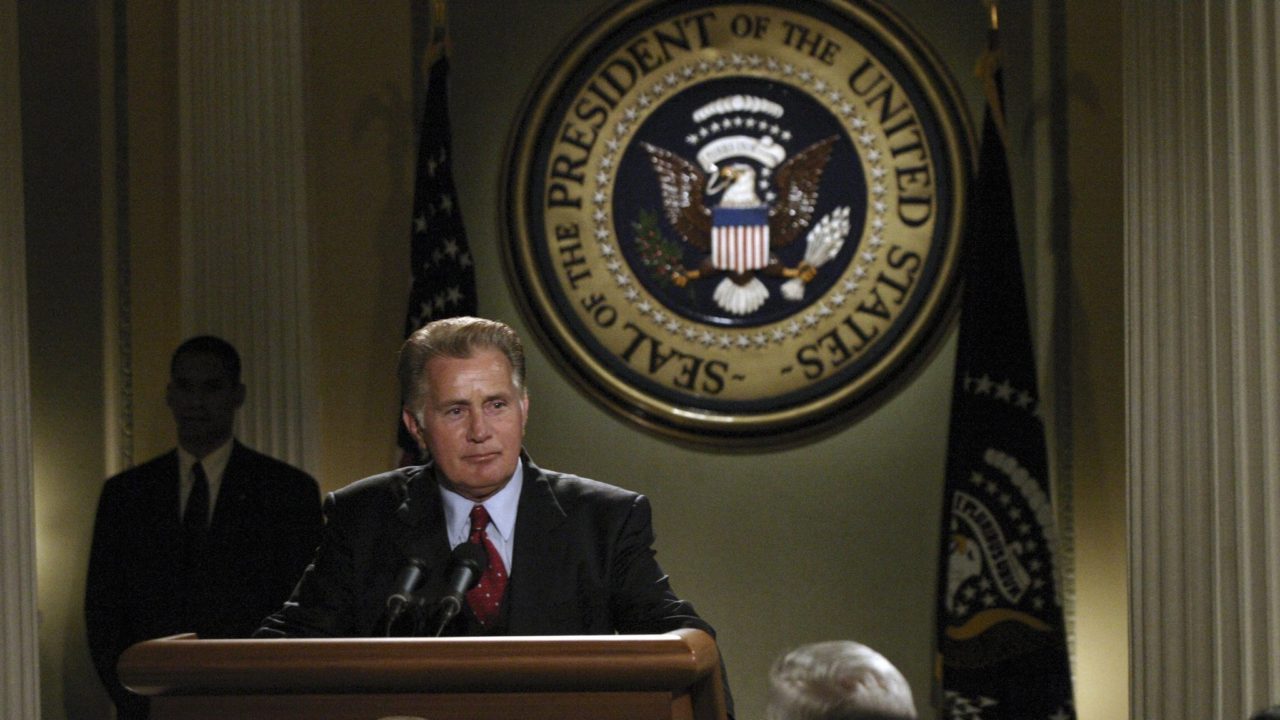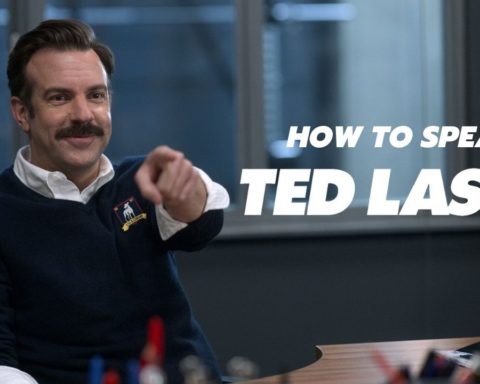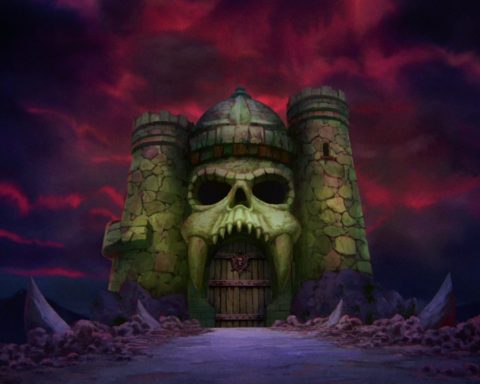As another new year begins with the beating of the drums of war, with America’s national discourse once again dominated by whether or not their preemptive military actions are justified, Umapagan Ampikaipakan takes a look back at The West Wing as a way to help us make sense of just what’s going on with Trump, Iran, and the killing of Qassem Soleimani.
The West Wing always took some pretty big swings. Throughout its seven seasons, the show often featured extended story arcs about a range of controversial issues. The brainchild of the manically verbose and prolific Aaron Sorkin – he had written every episode of the show’s first four seasons bar one – The West Wing had very clear liberal leanings, but nevertheless approached every issue with the ferocity of someone seeking to be convinced otherwise.
It was one of the few things on television that didn’t shy away from addressing the political hot topics of the day by way of argument and debate, trying it’s hardest not to paint either side as being morally virtuous or profoundly wicked.
In the 14 years since its final episode, and given how prescient the show was with regards to a great many things, The West Wing has become a sort of pop-culture document that’s often referred to by pundits, politicos, and aficionados every time life inevitably imitates art. The show, for better or for worse, both shaped and reflected the public’s imagination of what the presidency should be.

One major story arc in the third season of The West Wing happened to involve the state sanctioned assassination of a foreign dignitary. The character in question, Abdul Shareef, was the defense minister of the Kingdom of Qumar. (Qumar, a fictional state, is essentially a mash-up of all the worst parts of Pakistan, Saudi Arabia, and every other hyper-conservative theocracy you can think of.)
Shareef had been implicated as being the mastermind behind a series of terrorist plots against America and Martin Sheen’s President Josiah Bartlet had to make the impossible decision of whether or not to authorize his assassination.
What followed – spread out over three seasons and some 14 episodes – were a series of incredible conversations about war and peace, about utilitarianism, about the efficacy of preemptive action, and about the price of freedom. Bartlet, in particular, struggles with his own Catholicism, knowing he has to make what seems like the most obvious choice. The most righteous choice.
LEO: This is the most horrifying part of your liberalism. You think there are moral absolutes.
BARTLET: There are moral absolutes.
LEO: Apparently not. He’s killed innocent people. He’ll kill more, so we have to end him. The village idiot comes to that conclusion before the Nobel Laureate.
We Killed Yamamoto, The West Wing, Season 3, Episode 21
Remember that it was barely a year since 9/11 when all of this was taking place in the fictional world of The West Wing. It was a mere nine months since television audiences had witnessed, live and unfiltered, the absolute horror of two planes being flown into the World Trade Centre. They had seen desperate people jump out of burning buildings and fall a thousand feet to their death. America was about to invade Afghanistan. And any criticism of the President or his efforts at protecting American lives would have you branded as unpatriotic. It didn’t matter how un-American his methods were.
As viewers, we tend to assume that when our favourite characters, in our favourite television programme, come down on one side of a tough issue that they’ve made the right choice. What more in a post-9/11 world when audiences were well primed to the notion of protecting America, no matter the cost.
BARTLET: I want him tried.
LEO: That can’t happen. Who was the monk who wrote, “I don’t always know the right thing to do, Lord, but I think the fact that I wanna please you pleases you?” What is your objection exactly, sir?
BARTLET: It’s just wrong. It’s absolutely wrong.
LEO: I know. But you have to do it anyway.
BARTLET: Why?
LEO: Because you won.
Posse Comitatus, The West Wing, Season 3, Episode 22
At the time, The West Wing provided a sort of pop-culture coping mechanism for a public dealing with the after-effects of 9/11. What’s more, it’s overt optimism about the role of politics in society, that a small group of well-intentioned people can actually make a difference, was a welcome distraction to what was actually going on in the real world.
By the time the assassination arc came to its conclusion two years later, the discourse too had begun to shift. It was no longer as clear cut. America had invaded Iraq. The Dixie Chicks were speaking out against George W. Bush. And a more nuanced conversation was taking place with regards to the inherent conflict between America’s founding tenets and the measures they needed to take to protect themselves.
It is now 19 years later, the immediate trauma of 9/11 has faded from America’s collective memories, and as they begin to feel safer and more secure in the world around them, the debates on whether or not they had the right to protect themselves by assassinating of a foreign dignitary have divided the country down partisan lines. In broad strokes: Republicans in the country are lauding Donald Trump’s quick and decisive action, while Democrats are insisting that this isn’t how America does business. Or at least it shouldn’t be.
This mirrors what happened on The West Wing. Though it is interesting to note that President Bartlet himself never had to respond to the killing of Abdul Shareef. By the time it was revealed that it was Bartlet who ordered the killing of Shareef, the machinations of plot – by way of the 25th Amendment – had temporarily placed a Republican (played with teeming arrogance by John Goodman) in the Oval Office to take the heat. Where Bartlet, the Democrat, is depicted as a thoughtful and reflective Academic, Goodman’s Glen Allen Walken is depicted as a cocksure, impulsive brute. Albeit a savvy one.
At a press conference in the opening episode of the fifth season, when asked about the murder Abdul Shareef, Walken simply responds by saying: “My only regret is that we only got to kill the bastard once.” In fact, Walken’s entire press conference is incredibly Trump like in its rhetoric – as brash, but a lot smarter. He is decisive and unemotional. He is a rabid patriot who is unencumbered by nuance.
What’s particularly fascinating about this moment in the show is that even Bartlet’s overwhelmingly liberal staff find Walken’s decisiveness “presidential”. And that it isn’t the establishment but the news media, via the character of Danny Concannon, that provide the counter-argument with regards to where extrajudicial killings fall with regards to American values.
The West Wing was always most interesting whenever it strayed from the reality of American politics and veered into the theatrical. I’ve always found that politics is most engaging when coupled with melodrama. Sorkin’s approach to policymaking on the show was, first and foremost, based on an emotional reaction. Characters would come at an issue with their own personal views and biases until otherwise convinced by the virtue of a good argument. It was truly beautiful in its pedagogy. And a brilliant way to get the audience attached to the interminably dull back and forth on something like social security.
What keeps The West Wing relevant, however, is the repetitive and cyclical nature of political discourse in the United States. Gun control, social security, freedom of speech, abortion, separation of church and state, minority rights, terrorism; all of these are issues that will likely be argued over until the end of time.
If history – and The West Wing – teaches us anything, it is that the cause of war is a series of bad decisions by failed leaders. I don’t know if conversations of such integrity, intellect, and wit are actually taking place in the current White House (I highly doubt it), but as Donald Trump faces the greatest test of his presidency, as the world once again teeters on the brink of war, maybe The West Wing can once again provide us some direction in navigating all of the noise. Maybe it can provide us some much needed solace.










